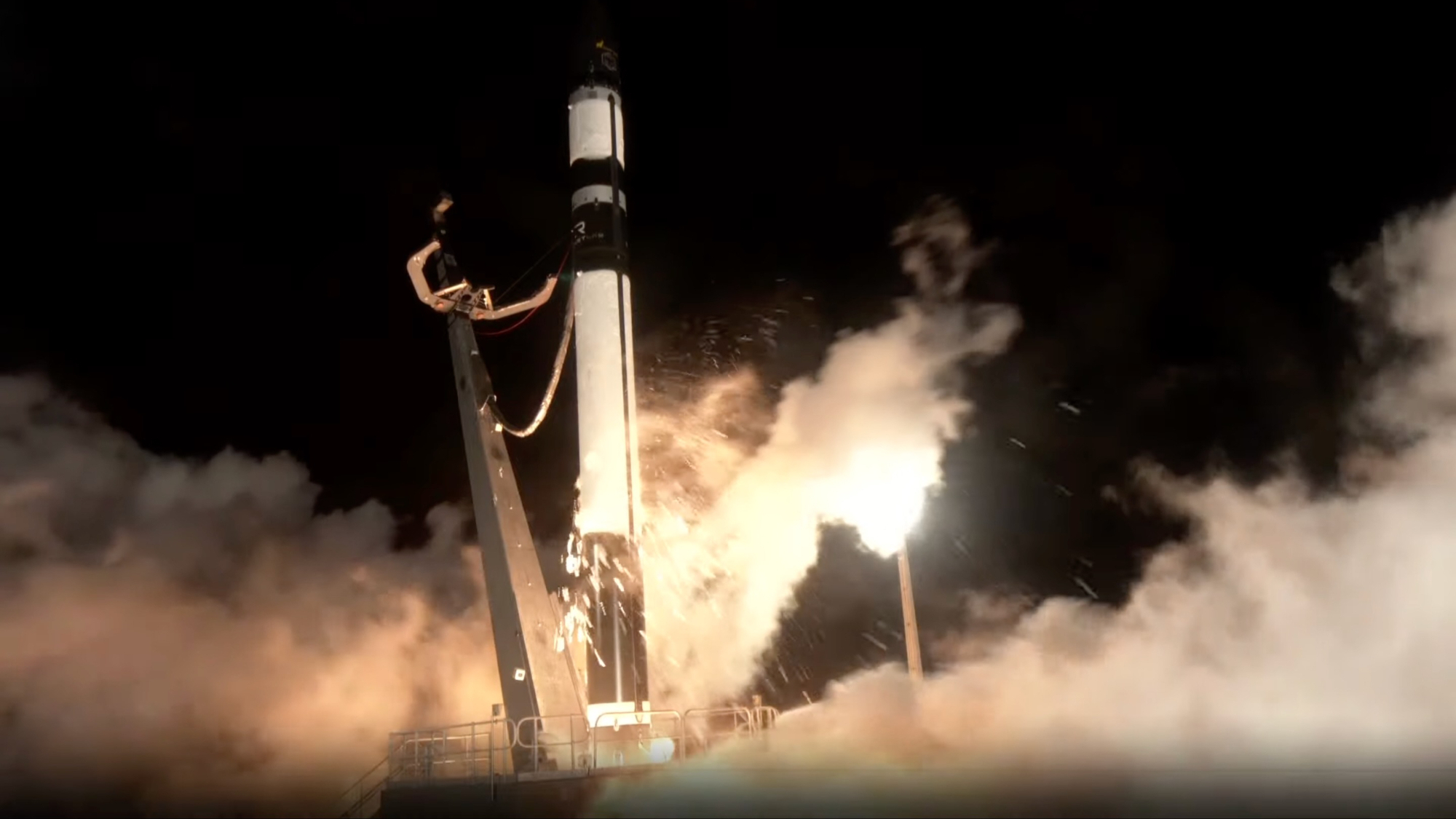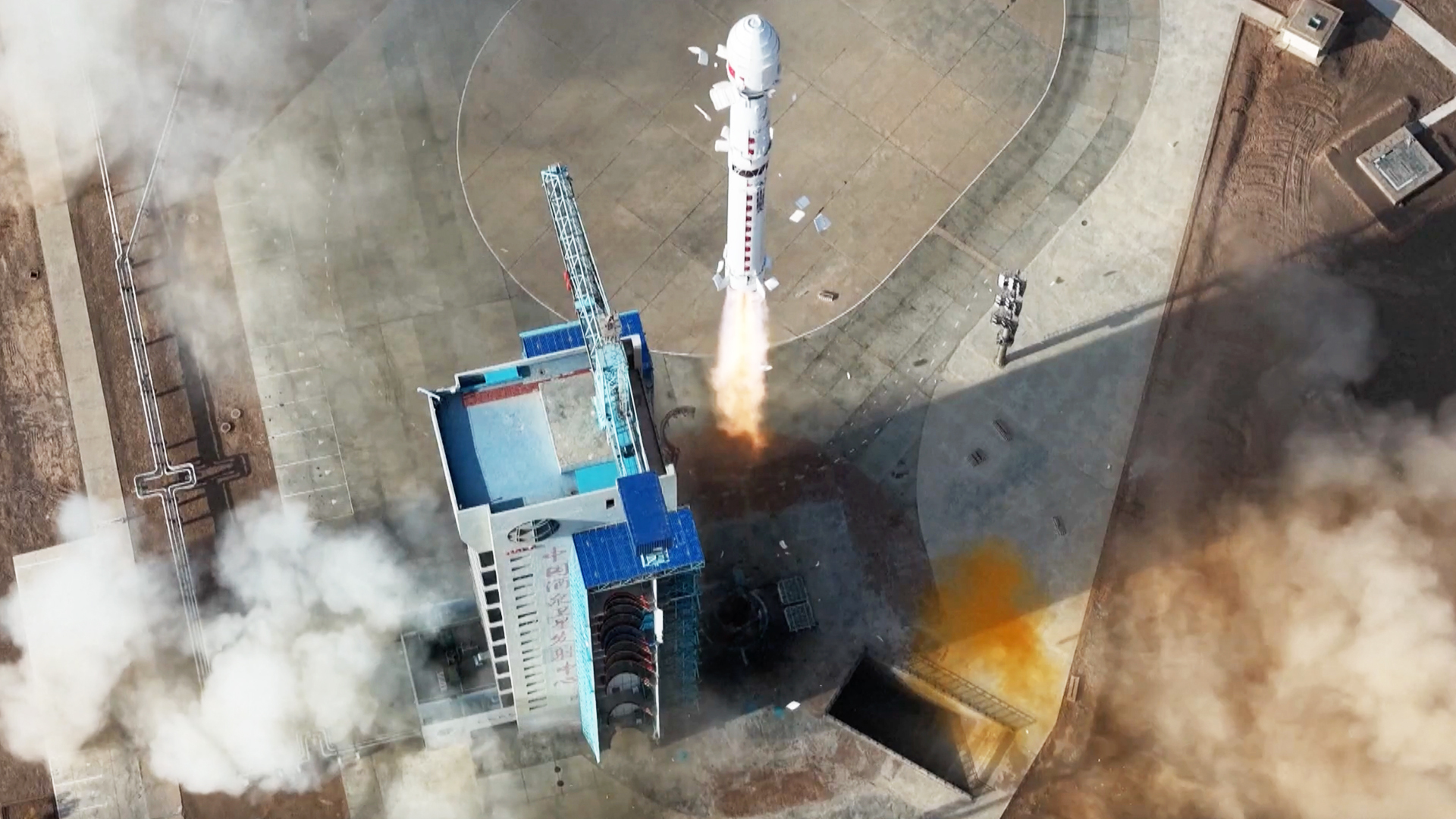Rocket Lab launches sharp-eyed private radar satellite to orbit (video)
Rocket Lab launched its 10th mission of the year on Sunday (Aug. 11), sending aloft an Earth-observing radar satellite for the California company Capella Space.
An Electron vehicle lifted off from Rocket Lab's New Zealand site on Sunday at 9:18 a.m. EDT (1318 GMT; 1:18 a.m. on Aug. 12 local New Zealand time).
The 59-foot-tall (18 meters) rocket did its job as planned. It deployed the spacecraft, called Acadia-3, about 57 minutes after liftoff into a circular orbit 382 miles (615 kilometers) above Earth.

Rocket Lab called Sunday's mission "A Sky Full of SARS." That's a nod to Acadia-3, which is a synthetic aperture radar (SAR) satellite.
"A Sky Full of SARS" was Rocket Lab's fifth launch overall for San Francisco-based Capella Space, whose satellites return sharp imagery of Earth in all weather conditions, day or night — a key benefit of SAR tech.
"Capella Space provides easy access to frequent and timely information affecting dozens of industries worldwide, including defense and intelligence, supply chain, insurance, maritime and others," Rocket Lab wrote in the press kit for Sunday's mission, which you can find here.
"Its market-leading SAR satellites are matched with unparalleled data infrastructure to quickly deliver reliable global insights that sharpen our understanding of the changing world — improving decisions about commerce, conservation and security on Earth," Rocket Lab added.
Breaking space news, the latest updates on rocket launches, skywatching events and more!
Related: Rocket Lab launches a commercial radar-imaging satellite in dramatic night liftoff (video)
"A Sky Full of SARS" was the 10th launch of the year for Rocket Lab, and the company's 52nd orbital mission overall.
Rocket Lab aims to make Electron's first stage reusable; it has recovered boosters from the sea multiple times to date and has even reflown an engine on a previous mission. But no recovery operations were performed on "A Sky Full of SARS."

Michael Wall is a Senior Space Writer with Space.com and joined the team in 2010. He primarily covers exoplanets, spaceflight and military space, but has been known to dabble in the space art beat. His book about the search for alien life, "Out There," was published on Nov. 13, 2018. Before becoming a science writer, Michael worked as a herpetologist and wildlife biologist. He has a Ph.D. in evolutionary biology from the University of Sydney, Australia, a bachelor's degree from the University of Arizona, and a graduate certificate in science writing from the University of California, Santa Cruz. To find out what his latest project is, you can follow Michael on Twitter.
